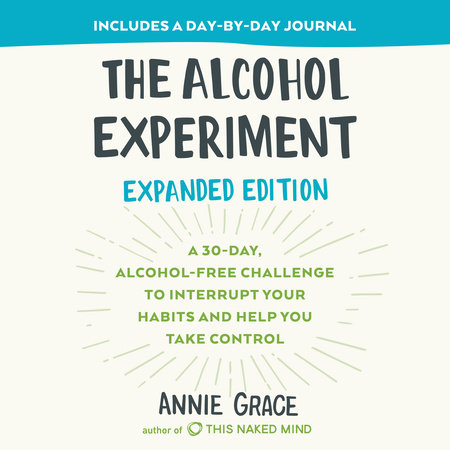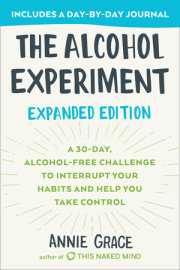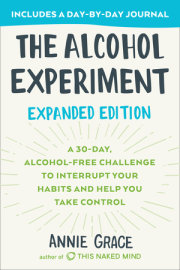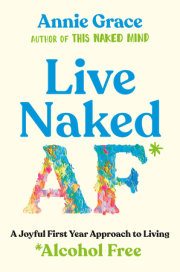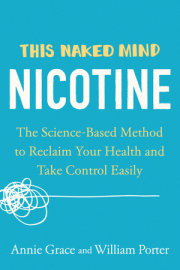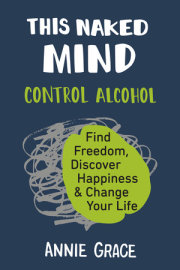What’s your all-time favorite drink? The one you can’t wait to get your hands on at the end of a long day or on Friday night? I bet if you think about it hard enough, you can even taste it right now. Taste is a innocent reason for drinking. After all, no one thinks twice about eating ice cream or nachos. They taste good! And our favorite alco-holic beverages are the same way. But for the sake of this experiment, let’s dig a little deeper.
AWARENESS
Many people tell me they really like the taste of their favorite drink. I get it. I was a red wine girl all the way. Maybe you’re a margarita lover. Or maybe you enjoy the taste of a good scotch on the rocks. Let’s name this belief:
“I drink for the taste.”
I know a woman who drinks a shot of Baileys in her coffee every morning before she drives her child to school. She doesn’t think it’s a big deal. It’s just a shot, and nothing else makes her coffee taste as good. Her concerned husband tried to get her to try Baileys-flavored coffee creamer, but she insists it doesn’t taste the same. But if you think about it, she’s not actually tasting a lot of alcohol— it’s mostly the flavorings, cream and sugar. So what do you think? Is she truly enjoying Baileys for only the taste? Or is there something else going on?
CLARITY
In order to gain clarity around your beliefs, you need to look back at the past and figure out why you have this belief in the first place. Where did it come from? There are no right or wrong answers here, and everyone is different. So ask yourself, what observations and ex-periences have you had in your past that might have made you believe alcohol tastes good? Maybe it’s something as simple as watching your parents pour themselves a drink at the end of the day. Or observing how they drank glass after glass in the evening. Why in the world would they drink it all the time if it tasted so bad? They’re smart, right? They’re grown-ups. So it must taste good, or they wouldn’t keep drinking it.
I have a friend from France whose parents made sure she drank a little wine with dinner from the time she was eight years old. She hated how it tasted, and told her parents so frequently. But they con-tinued to press on, saying she would appreciate the taste when she got older. The implication was that when she became more mature and grown- up, she would enjoy the taste of wine. We all want to appear more grown up when we’re kids, don’t we? Sure enough, over time my friend became a great wine lover and now drinks it every night.
Think back to your first drink and remember the experience. What were you drinking? Maybe it was wine at dinner when you were young. Maybe it was champagne on New Year’s Eve when you were allowed to stay up until midnight for the first time. Maybe you snuck into your parents’ liquor cabinet with a friend on a dare. Or maybe it wasn’t until much later— maybe your first beer was in college. Regard-less of when it was, think back to your first sip. Did you actually like it? Or did you choke and sputter, maybe even spit it out?
Who was with you at the time? Was it a friend you wanted to im-press? Was it a parent you wanted to make proud? Were you trying to find a place to fit in with a new group of people? If you’re like the vast majority of people I talk to, your first experience tasting alcohol was not pleasant. You didn’t like it. But someone was there to say, “Don’t worry, it’s an acquired taste. You’ll get used to it.”
So take a few minutes to write down where your taste for alcohol came from. What was it like the first time you tried a new beer or hard liquor? Was it always an amazing taste you immediately loved? Did you acquire the taste over time? Or did you fake liking it because you wanted to impress someone?
Now that you have an idea where your beliefs came from, let’s play detective and look at the internal and external evidence. This evidence will help you decide whether your belief that you like the taste of al-cohol is true or whether you have been fooling yourself.
People have some pretty intense reactions when they taste alcohol for the first time. They talk about it burning on the way down. They wrinkle up their nose because it doesn’t even smell good. Their eyes start watering. They might even spit it out. Why? One of the major reasons we don’t like the taste of something is because it’s harmful to us. We don’t like the taste of rotten food because it can make us sick. Well, what’s going on when you have a hangover? You’re sick! Our taste buds react negatively to alcohol to protect us from a harmful substance.
Let’s think about the idea of acquiring a taste for something. Whatever your drink of choice is, you probably didn’t like it immediately. But your body allowed you to get used to it. Why? Because your brain assumes you have no choice in the matter. If you did, it would make no sense for you to keep drinking. So your body does the logical thing—it makes it easier for you to deal with the taste. You acquire it. Which, if you think about it, is the same thing as becoming immune to alcohol.
Let’s look at it another way: My brother has a goat farm, and whenever I walk into the barn, there’s an intense unpleasant odor. As my sister-in-law says, it smells “very goaty.” But guess what? My brother and his family don’t even notice the smell anymore. Because they’ve gotten used to it. They have to go into the barn to feed the goats, so their brains no longer register the odor. That doesn’t mean they like it. But they have, over time, gotten used to it.
If you did happen to love the taste of your first drink, it was prob-ably something fruity or creamy that was more sugar than anything else. Am I right? Some drinks go down more easily than others. Straight alcohol is ethanol. The same stuff you put in your gas tank! A few sips will make you vomit and a few ounces of pure ethanol will kill you. I think it’s safe to say you would never go suck on the end of a gas pump nozzle because it tastes good! No matter what your favor-ite drink is, the alcohol makes up only a small percentage of the liquid. The rest is flavorings, sugar, carbohydrates, and other additives.
Now of course there are things we appreciate as adults that we did not appreciate as children. We clearly grow a more refined palate as we age, but let’s not kid ourselves: If we were purely drinking for the taste, we could certainly find other substitutes that are similar and wouldn’t cause any of the side effects alcohol causes. I am intolerant to gluten and I’ve managed to find plenty of substitutes that aren’t exactly the same but are now a natural part of my life and don’t create the stomach pain gluten does. The fact is ethanol doesn’t taste good. Consider this: When scientists want rats or mice to drink alcohol for a study, they have to force-feed them because they will not naturally opt to drink it.
So are you honestly drinking it for the taste?
If not, then why are you drinking it?
You’ve almost certainly observed characters in the movies and on TV enjoying the taste of alcohol, or giving a satisfying burp and a smile after chugging a beer. Even if the actors are actually drinking whiskey-colored tea, the message still gets across—it tastes good. We all tend to choose our alcohol to match our identities. If we’re refined and classy, maybe we drink red wine. Or if we like old cowboy mov-ies, maybe we lean toward whiskey. Of course, if you’re an interna-tional spy, you’ve got to order a martini—shaken, not stirred. We identify with the characters and tend to like the same drinks they like. I used to love chugging Guinness and was so proud of my chugging ability. It made me feel tough and like “one of the boys” in that mas-culine work environment.
Maybe you see yourself as a discerning wine lover, and your cellar has become a status symbol. If that’s the case, you probably pride yourself on your ability to discern the toasty-smoky-oaky flavors with their fruity or floral overtones. Or whatever. Here’s a fun fact— the American Association of Wine Economists conducted a study of more than 6,000 wine drinkers. In this blind taste test, they discovered that people cannot tell the difference between cheap wine and expensive wine. In fact, most people preferred the taste of the cheaper varieties. And you know what else? The same blind research later found that people can’t tell the difference between pâté and dog food!So what about the argument, “alcohol enhances the taste of my food”? Do we say that about any other beverage- and- food combination? People say milk enhances the taste of cookies, but could that be because we physically dip cookies into milk? No one dips their steak into their wineglass. The truth is, alcohol is actually an anesthetic. It numbs our ability to taste, making it more difficult to savor our food.
Imagine we could remove all the physical and emotional effects of alcohol. If it couldn’t actually make you drunk, would people still drink it? There’s a body of pretty convincing research suggesting they wouldn’t. It tastes bad. It’s poisonous. Drinking for the taste is conve-nient, innocent excuse. At the end of the day, is it a possibility that there’s something more going on with your drinking than just the taste? Humans are incredibly adept at lying to themselves and believ-ing their own stories. It’s possible that you actually do love the taste of a cool, frosty margarita. But is it really the alcohol you like? You may not have tried a delicious virgin margarita, but the truth is, they taste as good, maybe even better! And you’ll be surprised and empow-ered by how much you enjoy yourself without the tequila—or the hangover.
TURNAROUND
This may be the most important part of the ACT Technique. Here you want to dig into the turnaround or the opposite of the belief. You’ll want to take the time to come up with as many ways as you can (at least three) that the turnaround is as true or truer than the original belief. In this case the opposite of “I drink for the taste” is “I don’t drink for the taste” or maybe even “I don’t like the taste.” Now it’s your turn to come up with as many ways as you can that the turn-around is true in your life.
Copyright © 2018 by Annie Grace. All rights reserved. No part of this excerpt may be reproduced or reprinted without permission in writing from the publisher.

